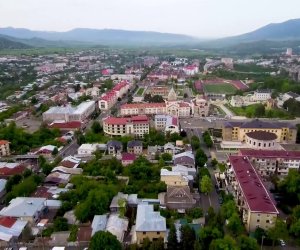Beyond oil and arms

By Diana Cohen Altman
That intriguing, but seeming
odd couple of the East — Israel and Azerbaijan — cannot be explained by oil and arms alone. Even the menacing glare toward both countries from nearby Iran does not illuminate how these two came to be partners with deep trade ties.
The modern Israel-Azerbaijan bond began with Israel’s recognition of Azerbaijan after the latter’s 1991 declaration of independence from the Soviet Union. Some 25 years later, friendships, substantive cultural and educational exchanges, and extended business ties belie expectations of how a Muslim-majority country might interact with Israel. A surprising number of Azerbaijani young people have traveled to and studied in Israel.
Israelis and Azerbaijanis, respectively, live on land that bears the footprints of a great many who have come and gone over centuries. A 100-year-old Azerbaijani citizen will have lived through the Russian Empire, Azerbaijani Democratic Republic, Azerbaijan Soviet Socialist Republic, and, since 1991, the Republic of Azerbaijan. An Israeli of the same age, if not born in Palestine, will likely be a refugee from an Arab country or from Nazi Europe and will have witnessed the establishment of the modern state of Israel in 1948. A tour around both countries reveals citizens in a vast array of physical types, which serves as a visual reminder of complicated history.
Just as
culture can help to explain the Israel-Azerbaijan partnership, it can be distorted and used by enemies to disparage both the relationship and the countries themselves. Both Israel and Azerbaijan face relentless questioning of their history and their very existence. Virtually every Israeli and every Azerbaijani recognizes some connection between culture and existence.
(Washingtontimes)
www.ann.az
Similar news
Similar news




































 Photo
Photo 



 Video
Video 

